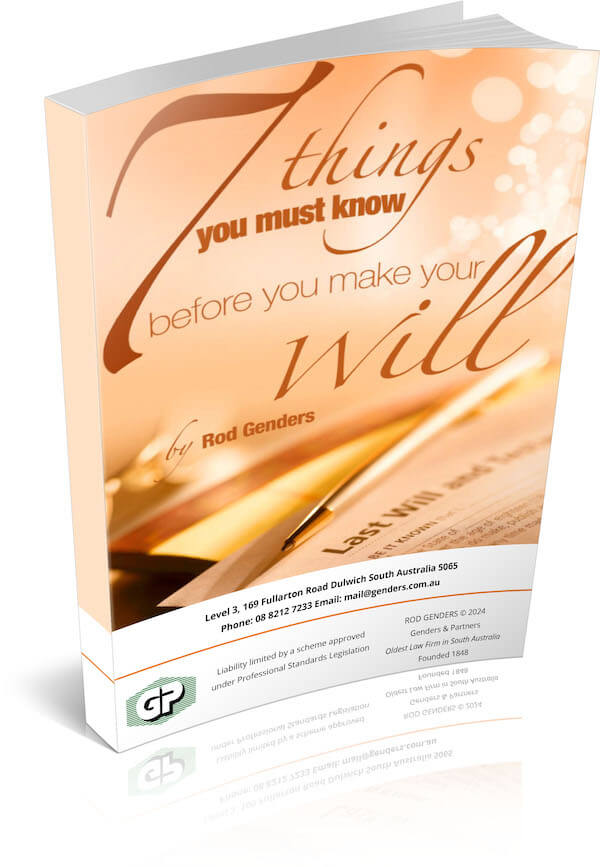When a person dies without a Will, this is known as dying “intestate”. This might happen because their death occurs before they even considered writing a Will. Some people feel that they don’t need a Will because they don’t have a substantial estate. A person might write a Will, only to have a Court declare it invalid after they die, which has the same legal effect as dying without a Will at all.
When a person dies without a Will, the law has to find a way to distribute that person’s property. In some parts of the world, the government will take most or all of the deceased’s estate, but in most western countries there is a strong preference in the law to keep property in the family of the deceased, generally leaving it to the closest living relatives.
The exact order of priorities among relatives differs from state to state in Australia, but the goals of intestacy law (keeping property in the family) are broadly the same, so the schemes in each State are usually quite similar.
Often the surviving spouse will receive the first “piece” of the deceased’s estate. The value of this piece varies over time. For example, in South Australia for many years the surviving spouse in an intestacy would receive the first $10,000 plus a percentage of the remaining estate. In February 2009, the law in South Australia was changed to increase this to $100,000 plus a percentage of the remaining estate.
If there is a surviving spouse, and the marriage has produced children (who are still dependent), the presumption is usually that the spouse will use whatever he or she inherits to support the children. If there are living children, but no surviving spouse, the property is generally divided equally among the children. If there is not a living spouse or child, the next preference is for property to pass up or down the direct line of descent. So, if there are no surviving children or grandchildren, it may go to the deceased’s parents.
If there is no surviving spouse, and no living parents or children/grandchildren, the property may go to the deceased’s siblings. If there are no living siblings, it will go to the deceased’s grandparents. If they are not alive, the law begins to look outside the direct line of descent (aunts, uncles, first cousins, nieces, and nephews, etc) The precise order will vary from state to state.
Keep in mind that you only have control over where your property goes after you die, IF you create a Will. If you neglect to write a Will, or choose not to, you have NO control.
Death & taxes, illness & share-market corrections may be unavoidable … but they don’t have to ruin your family or your business. Make the effort to protect the people you really care about. Avoid of intestacy in Adelaide and all over South Australia by calling Genders & Partners to create an integrated estate plan. And do it NOW … before it is too late.
Rod Genders is a senior Australian lawyer specialising in estate planning and accident compensation. His boutique specialist law firm is one of the oldest and most respected in Australia – visit it at www.genders.com.au . Rod is also a prolific author and speaker. Some of his articles on Wills, Probate, Trusts, Estate Planning, Asset Protection and Retirement Planning may be found at www.genders.com.au/adelaide-lawyer-blog/.
SPECIAL REPORT “7 Things You Must Know Before You Make Your Will”
In this report you will Learn:

Why home-made Wills can be a LOT more expensive than you might think.
The secret weapons used by the rich & powerful to protect their assets, and transfer their wealth two or three generations ahead.
How Estate and Trustee Companies make BIG money from “free” Wills.
The Most Common Estate Planning Mistakes, how they can cost your family a fortune, and How to Avoid Them.
The Elements of a Sound Estate Plan – why a Will alone is not enough.
How to Make Sure Your Assets Stay in Your Family and are not lost to creditors, lawsuits or ex-spouses.
How to guard against challenges to your Estate after you’re gone.
